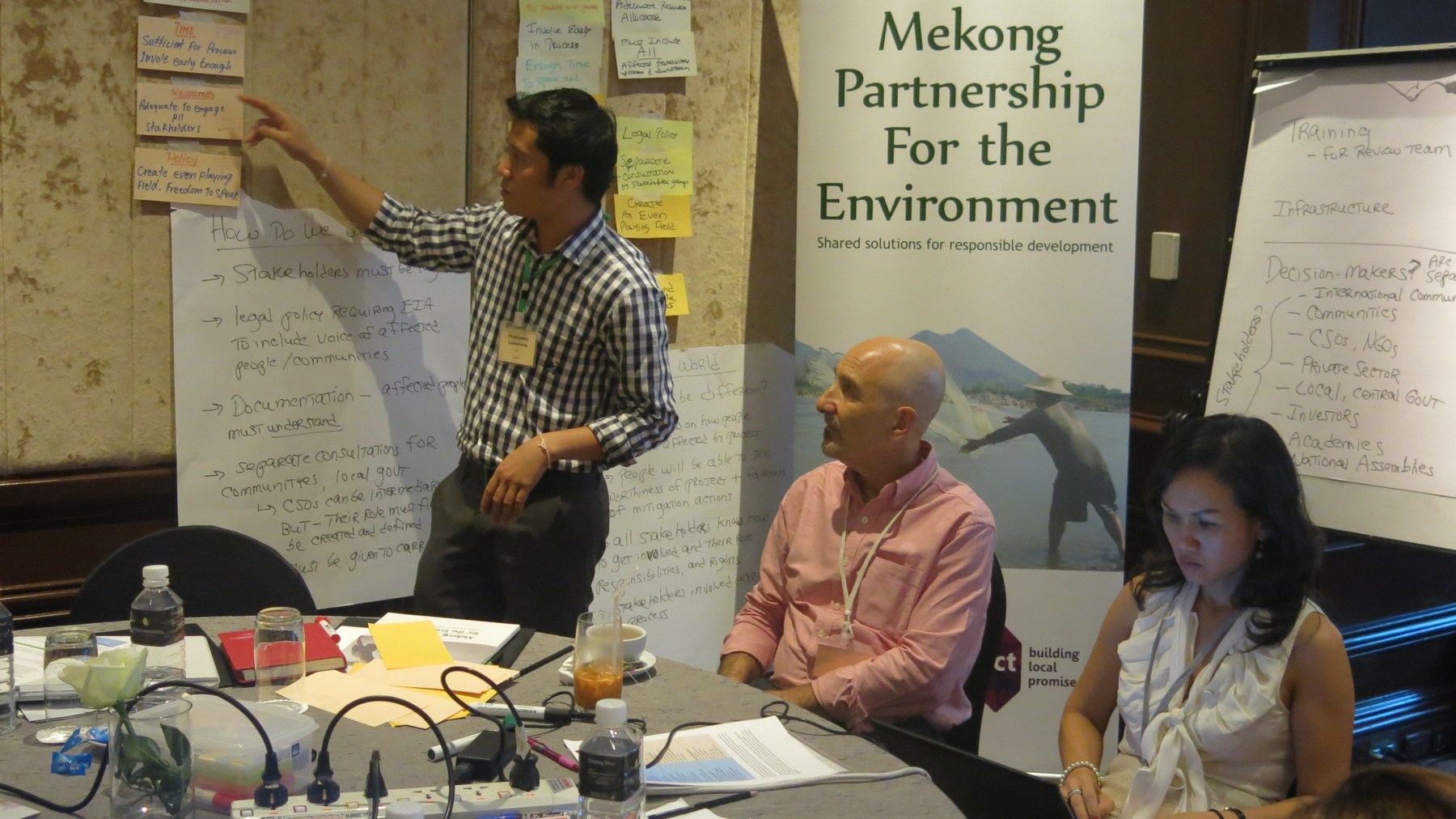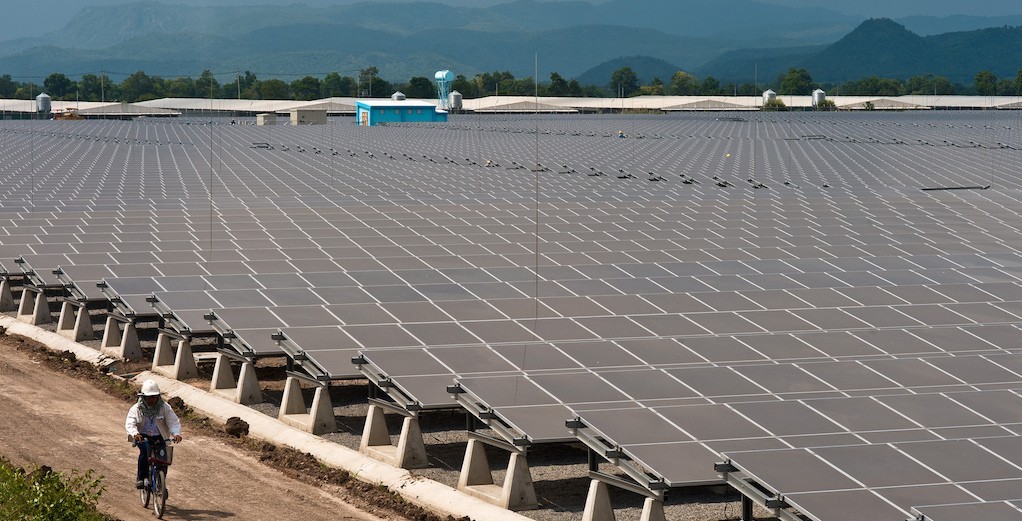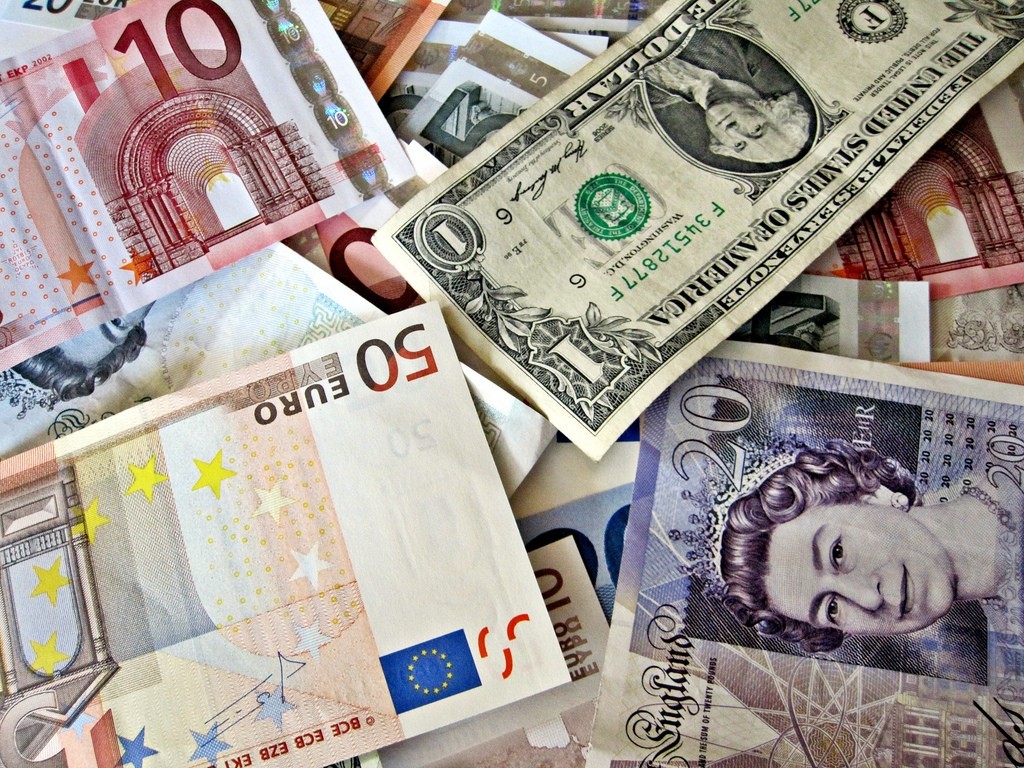As a result of the recent endorsement of Thailand’s Power Development Plan B.C. 2015-2036 (PDP 2015) which is leading to the construction of power plants with capacity of 57,459 megawatts in the next 20 years signifying the security necessary of the country’s electricity, there were several irregularities found after the examination of the content of the plan. The key concern is that the PDP in 2015 will also lead to the unnecessary construction of the power plant investment. Not only this investment will not be beneficial but will instead incur long-term financial burdens to consumers with more than 6.7 billion baht.
Category: Resource / PR
Government and civil society support strong Environmental Impact Assessments
Government and civil society representatives highlighted the need for strong and inclusive environmental impact assessment (EIA) policies and practices in the Mekong region at a meeting this week in Bangkok, Thailand.
PR: Working toward profitable, responsible investment strategies
This week, regional businesses, financial institutions and civil society organizations from across the Mekong region met to strategize about making investments more sustainable, which reduces risk, saves money and improves their reputations.
Central Mekong Delta Region Connectivity Project: Semiannual Environmental Monitoring Report (July-December 2014)
Environmental monitoring reports describe the environmental issues or mitigation measures of a project.
PR INTERVIEW: Looking Into the Human Rights Impacts of Hydropower Dams in Vietnam
Raoul Wallenberg Institute RWI, in cooperation with the Vietnamese Institute for Human Rights, recently held a national conference on human rights research and education in Hanoi, Vietnam. Our programme officer, David Eile, sat down to talk to Nguyen Thi Thanh Hai, the Deputy Head of Human Rights Theory Division at the Vietnamese Institute of Human Rights […]
PRESS RELEASE: Local groups demand accountability upon Japan’s announcement of official involvement in the Dawei SEZ
Mekong Watch On August 4th, local community groups from Dawei (southern Burma) sent a letter to the Japanese Foreign Ministry, the Japan International Cooperation Agency (JICA), and the Japan Bank for International Cooperation (JBIC) after Japan officially announced its involvement in the Dawei Special Economic Zone (SEZ) development project and related projects. This is a […]
PR ARTICLE: NASA, USAID Open Environmental Information Hub for Southeast Asia
NASA/ USAID NASA and the U.S. Agency for International Development (USAID) Monday launched SERVIR-Mekong, a joint project to strengthen regional environmental monitoring in five countries in the lower Mekong region of Southeast Asia. One of three SERVIR hubs now operating in developing regions of the world, the center is housed at the Asian Disaster Preparedness […]
PR ARTICLE: SUMERNET roundtable explores building social and environmental safeguards for a Mekong Region facing rapid economic integration and a changing climate
SUMERNET Climate change, regional integration and safeguards were highlighted by speakers at a SUMERNET roundtable at the regional symposium on the role of social and environmental safeguards held by the Mekong Partnership for the Environment (MPE) in Bangkok on 25-27 August 2015. By Albert Salamanca The regional symposium theme was “Safeguarding Sustainable Development in the […]
RESOURCE: Mekong EIA Briefing: Environmental Impact AssessmentComparative AnalysisIn Lower Mekong Countries
Pact/Mekong Partnership for the Environment This report provides a comparative analysis of EIA laws, policies, regulations, and guidelines in the Lower Mekong countries (Cambodia, Laos, Myanmar, Thailand and Vietnam). The analysis was conducted in order to determine existing regional harmonization, identify gaps, and recommend options for developing a set of standards that can accompany the […]
ADB urges protection of “natural capital” in the Mekong, while concerns persist about its huge infrastructure investment plans
Environment ministers from the six Mekong Region countries gather every three years to review environmental challenges and regional responses under the Greater Mekong Subregion Environment Ministers’ Meeting (EMM), hosted by the Asian Development Bank (ADB).




